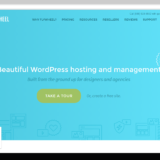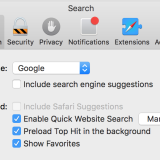Skype Founder Jaan Tallinn on the Future of Medicine, and his new company
Today, I’m thrilled to share with you all my recent interview with the cofounder of Skype Jaan Tallinn. Today, he’s here to talk to us about his latest company though, Metamed, a high-tech medical startup that he cofounded, with backing by Peter Thiel, and his Venture Capital firm, Founder’s Fund.
I met Jaan a few months ago at a conference, and after talking with him for a little while, I knew I needed to have him on here, to tell us a little about his company, and the future of medicine. The interview is a quick read, but it’s interesting stuff, and Jaan included some great further reading, in case you’re interested.
1. Describe Metamed and how it will change medical care. Am I correct in that Metamed’s product are for more of a niche market of sick people, rather than the healthy public, or will Metamed’s processes ever impact the general public?
Metamed is a personal medical research service. As our Vice President of Research, Sarah Constantin, wrote in an article for marginal revolution, our hypothesis is pretty conservative:
By applying personalisation to a patient’s medical case, we are able to provide dramatically better results than the standard medical practice, that is a mass-produced product at its core.
Metamed can find solutions for sick people, and also help optimise the life of generally healthy people. For example, recently we were able to help an otherwise healthy person who was suffering from a sleep disorder that was impacting his productivity. another areas Metamed can help healthy people in are diet, vitamin or drug regimen.
2. How long do you believe that today’s younger generations will live?
Conditional on there being no global disasters on one hand, and people remaining mortal on the other hand, I would just extrapolate the current trend of life expectancy increasing. it’s not terribly valuable exercise though, since both the chance of dying in a catastrophe, or becoming immortal are not trivial, so the nonzero chance that some people who will live for billions of years, will dominate the average number!
[mc4wp_form]
4. What will medical care be like in 2020 versus today? What about 2025? What will be obsolete, and how will the experience of going to the doctor change?
First and foremost, I do hope that we would get much more help from automated monitoring and diagnostics. It’s a dirty secret of the medical industry that automated expert systems have outperformed unaided doctors for over a 50 years now. which is an evidence for the hypothesis that the healthcare system does not have an information problem nor a technology problem, but a distribution problem. Atul Gawande actually wrote a wonderful article about this in the new yorker last year:.
5. Will the new diagnostic technologies lower, raise, or barely change the cost of medical care in the short term, and long term? Why?
If diagnostics are performed outside the medical system, the new technologies will really lower the cost. If they are performed inside the system, they will increase the cost. as David Goldhill wrote a few years ago in the atlantic, the medical industry is the only industry where new technology drives up the costs, instead of lowering them.
6. How will technology change the way doctors diagnose?
As I mentioned earlier, technology can already provide better diagnostics than doctors on average. The problem is how to adopt that technology. My hope is that the quantified-self movement grows, eventually making the monitoring and diagnostic devices more advanced, and cheap enough to be sold directly to the people, thus working around the healthcare system. I bought my basis watch myself, instead of through my doctor! [the basis watch, is a smart watch that monitors, health, heart rate, and sleep]
7. How will technology change treatment?
Technology will be great for preventing misdiagnosis and late treatment, because if people have a much better idea of what’s going on from their wearable biomonitors, this would give doctors a much more solid starting point to work with, not to mention people would also be alerted to possible medical problems earlier.
8. What effect will government regulations/bureaucracy have on advancements in medical care?
I think it would have very little effect on the healthcare system, because you can’t make revolutionary changes via political means to a system that directly affects the income of so many voters. On companies trying to provide healthcare-related services outside the system, government interventions can have dramatic effect of course, as recently evidenced by the 23andme debacle [23andme, a personal DNA analysis service, was ordered to cease testing by the FDA this year, because their service qualifies as a regulated medical product under current statutes.].
9. How will privacy concerns limit advancements in medical care, medical communication, and data based medicine? Do you think that people will fear security vulnerabilities in cloud-based medical histories?
I live in Estonia, where we have had cloud-based medical histories and prescriptions for a while now, and people seem to have very few privacy-related concerns there. of course, that might change should there be an actual disaster there. I think that it’s more than possible to safely bring all data online.
For more interviews with tech movers and shakers, and more, follow us on Facebook, or sign up for our newsletter
[mc4wp_form]










